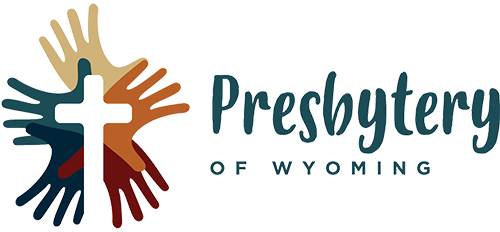Q&A Interview between Rev. Dr. Tamara Mitchell and General Presbyter Rev. Jeromey Howard
This article was originally published in PCJH’s Summer 2025 Pinnacle, “Partners in the Gospel”
Tammy: Thanks so much for making time for this, Jeromey. We’re putting together this newsletter focused on our mission partners—local and global—and we thought it would be really helpful to talk about the Presbytery and how we’re connected through it. Could you start by explaining what exactly a Presbytery is and why it matters?
Jeromey: Sure! Many people are unfamiliar with the term “resbytery”. It’s one of those church words that can sound a little mysterious at first, but it’s actually pretty simple once you break it down.
In the Presbyterian Church (USA), the entire country is divided into 177 regional groups called presbyteries. Think of them as communities of churches that are connected and work together. Each presbytery covers a geographic area and includes all the Presbyterian congregations within that region. The presbytery isn’t a building or just a leadership team—it’s made up of people from our different churches. Specifically, it’s a group of elected leaders, both pastors (called “teaching elders”) and laypeople (called “ruling elders”), who come together to help guide and support the churches in that area.
We often describe the presbytery as part of the “mid council” of the church. In the Presbyterian Church, there are three main levels of leadership:
The Session: The leadership council at each local church
The Presbytery: The regional council that connects and supports churches
The General Assembly: The national body that oversees the whole denomination
So, if the Session is like a local school board for one school, the Presbytery is kind of like a school district. It helps churches stay connected, share resources, and make decisions together.
Presbyteries do all kinds of important things. They:
- Help churches find and call new pastors
- Offer support when congregations go through transitions or challenges.
- Ensure churches are living out our shared values.
- Help pastors and elders grow through training and care
- Organize mission and outreach efforts across the region
In short, the presbytery is how we live out our belief that we’re better together. It gives churches a way to support one another, stay accountable, and be part of something bigger than ourselves.
Tammy: Can you describe what your role is as “General Presbyter?”
Jeromey: Sometimes I say, “I’m like a bishop with no power.” I help lead and support congregations and pastors across Wyoming. I’m like the face of the Presbytery.
Sometimes people better understand it when I compare it to a school district or a regional service center. Imagine a network of schools all functioning locally but connected to a district that helps them meet statewide standards, provides support, and ensures resources are distributed fairly. The Presbytery functions the same way—it’s the connective tissue between the local and the national church, both structurally and spiritually.
Tammy: That makes it relatable. What would you say drives the work of the Presbytery?
Jeromey: Of course, the primary drive is the proclamation of the Gospel for the salvation of all people. But I think you may mean something more particular. Naturally, because of the nature of the church, part of what drives our work is administrative. That includes things like church reports, training, budgets, transitions, and personnel. But the other part is more relational: showing up when there’s a need. Natural disasters, deaths, community tragedies—pastors and congregations often turn to us for support, care, prayer, and resources.
I’ve been with churches navigating sudden grief, coordinating responses to wildfires, and helping pastors deal with burnout and isolation. There’s something powerful about simply being present when people need help, and that presence often opens the door to healing and clarity.
Tammy: That is powerful. How many churches are currently in our Presbytery?
Jeromey: Right now, we have 25 congregations and one camp (Camp Story).
Tammy: What are some of the tangible ways the Presbytery supports pastors and congregations?
Jeromey: There’s a wide range. Financial help during medical crises. Mental health support. Educational grants, especially for pastors in small churches who can’t afford continuing education. We also set aside proceeds from property sales for emergencies and special requests. For congregations, we help with emergency repairs, technology grants (especially during COVID), and mission coordination.
One of the most meaningful things we do is help churches in moments of transition or decision. In Star Valley, for example, a congregation had been stuck in a pastoral search for nearly a year. I was able to drive out, stay overnight, and spend time just being with those folks. We shared a meal, worked through their process, and within a week they had a candidate. It wasn’t about money or policy—it was about being the church together.
Tammy: Great story. What would you say is the benefit of being part of the PC(USA)?
Jeromey: Our theology tells us we’re part of the body of Christ. We belong to Christ and therefore to each other, as fellow disciples. We’re called to live publicly in community. Denominations offer structure, connection, and accountability. Without that, a church and leaders can easily become isolated—and sometimes even unaccountable. I’ve seen churches where the building is personally owned by the pastor, which seem a bit precarious.
Being Presbyterian means we believe in shared leadership, transparency, and communal discernment. It also means we hold one another accountable—not just for doctrine but for mission integrity. I think of it as a covenant, not a contract. We agree to walk together, even when we disagree. And we do it with love and respect.
Tammy: What’s something that gives you excitement right now in the Wyoming Presbytery?
Jeromey: Seeing how passionately faithful our congregations are. Big or small, progressive or conservative—they’re doing real ministry. Meals, pantries, camps, community support. They’re sharing Jesus in their own way, but always with heart and love.
Even when a church closes, like Fort Laramie did recently, the members keep living out their faith. And Fort Laramie donated part of their remaining funds to support another church—Guernsey. That’s beautiful.
Tammy: How is the Wyoming Presbytery funded?
Jeromey: Our budget comes from two sources. First, is what we call “per capita”. Per capita is a shared contribution that every Presbyterian church member is invited to make each year. The term itself just means “per person.” It’s a way for each of us to help cover the essential costs of being part of a larger, connectional church family—locally, regionally, and nationally. Think of it as chipping in for the infrastructure that makes everything else possible. Mostly it is administrative—it funds the basic infrastructure: the clerk, meeting logistics, required processes. The second source is called “Mission”. Mission giving funds everything else: funds to start new churches, camping ministry, support for pastors, grants, youth programs, pulpit supply, and creative ministries and opportunities. It is also the way my call is funded.
There’s no overhead magic here. If you’ve ever received a visit, a workshop, a grant, a pulpit supply preacher—that’s mission dollars at work. I think it’s important people know that. There’s no national fund waiting to bail us out. It’s our collective generosity that enables ministry to happen in the day-to-day.
Tammy: What’s changed in the Presbytery since you arrived?
Jeromey: I see us becoming more relational with one another. There’s more trust, more willingness to connect. And we’re rethinking how we meet as a Presbytery—blending Zoom efficiency with in-person time for deeper community.
We’re also experimenting. Cody recently piloted an accelerated pastoral transition—starting the process before their pastor retired. It’s working well. It’s encouraging to see people willing to try new things.
Tammy: I know there’s been discussion around campus ministry. Can you say more?
Jeromey: Yes! We’re hoping to support post-high school students more intentionally, especially at the University of Wyoming. We’re exploring how a Presbytery-funded staff role could serve students—and maybe serve the Presbytery more broadly, like pulpit supply during summers. This initiative is close to my heart. The college years are a pivotal time in someone’s faith journey with Christ—full of questioning, identity-shaping, and decision-making. Having someone on campus who can walk with students, pray with them, and help them grow as disciples can make a lifelong difference.
Tammy: Thank you, Jeromey. Any final thoughts?
Jeromey: Yes! I’d love to see our churches share mission opportunities more widely. Many of our smaller churches don’t have the bandwidth to organize trips or offer special events but they’d love to participate. Also, I love hearing all about PCJH. When I know what you’re doing, I can show up, promote it, and connect others.
And maybe most importantly, I don’t want us to ever forget that even when your church is small, your impact is not. The ministry you do in your community is seen, valued, and essential. The Presbytery exists to walk with you.
Tammy: Thank you so much for your time, your partnership and your service, Jeromey.


